Doing away with wrapping paper and upcycling discards: How some families are reducing waste this Christmas
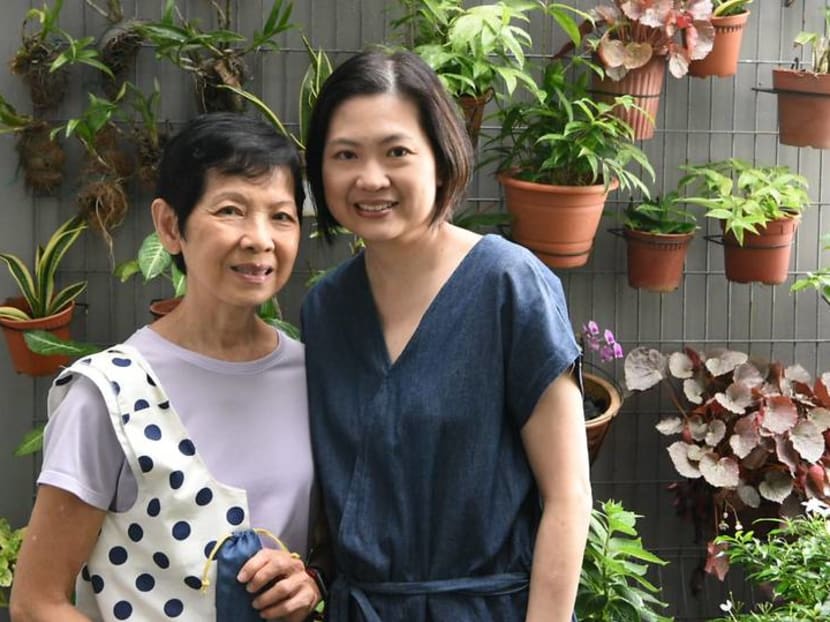
Ms Sheri Goh and her mother Madam Lily Chua are practising a zero-waste Christmas this year. (Photo: Jalelah Abu Baker)
SINGAPORE: Ms Sheri Goh has a big family. She has an elder sister and 13 cousins just on her mother’s side. She and her cousins have 12 children among them. This means that Christmas can be a big, messy and wasteful affair.
To make gift-giving more manageable, the family has worked out a strategy. Each child gets three gifts.
READ: Commentary: All these corporate greeting cards and presents are not gifts. They're spam
“That’s still a huge number of presents with a huge amount of wrapping. Every year, I’ve noticed, we fill two to three garbage bags of wrapping waste,” the 43-year-old told CNA.
Things will be a little different this year.
On the suggestion of a cousin, the family is doing away with the wrapping of gifts. If they must, they are to use newspaper or waste paper. Ms Goh, an editor with a religious publication, will use junk mail she started collecting a few months ago as wrapping paper.
She is also putting more thought into her wrapping.
READ: Commentary: Our holiday extravaganza has a huge carbon footprint
“Using glue instead of tape makes for easier recycling afterwards. I’m also using ribbons that I already have at home, as well as re-purposed ribbons from various product packaging, to make the presents look nicer,” she said.
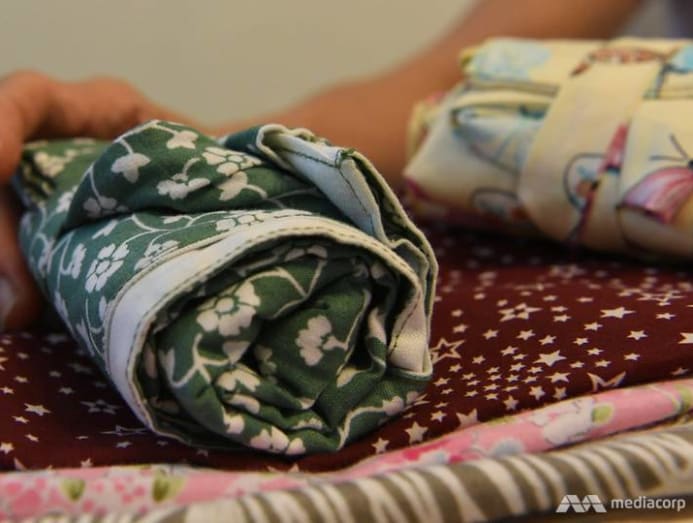
“My mom came from a poor family so she's always had the ethos that we should not waste, that we should try to reuse as much as we can,” Ms Goh said.
But giving presents is not the only way to celebrate Christmas, she added. She lamented that it has become too commercialised. This year, she is giving her parents the gift of time.
READ: Nee Soon East turns municipal banners into everyday items as part of zero waste initiative
“My parents and I are giving to each other a road trip up to Malaysia, where they will pay for food and transport and we (she and her husband) will pay for lodging. The gift of time with each other is priceless, doesn’t create any gift-wrapping waste, is definitely something the other party will want and will last forever,” she said.
HANDMADE WITH LOVE
Others are making the effort to create their own gifts. Ms Sheau Chan, 46, has made cardholders using curtain fabric swatches that would otherwise be discarded. Her Christmas cards are made out of sturdy mooncake boxes.
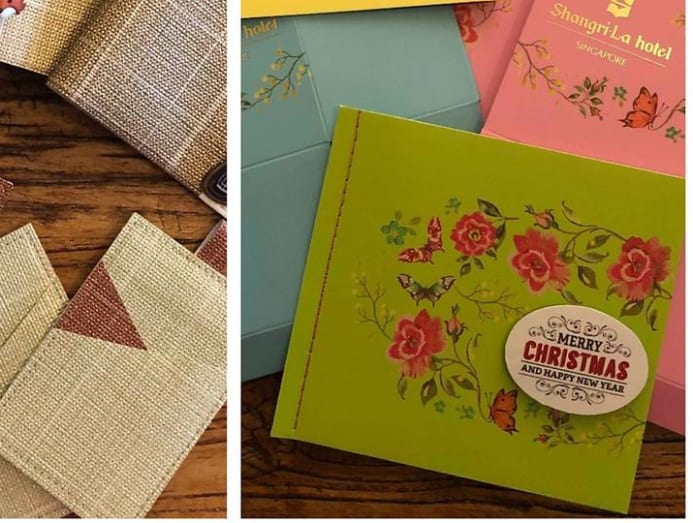
She reuses the wrapping paper from the gifts she receives. She also collects Esplanade concert programmes “because they were quite pretty” to use as wrappers.
Ms Chan, who usually hosts her friends for Christmas, said that she tends to get either bigger or more gifts as the host, but she has told her friends there was no need for that.
“I told them to get me vegetables that last for a long time, or home-made items, because my best friend bakes. They can give me a cauliflower. I’ll be more than happy,” said the events planner.
Similarly, Ms Julia Anna Deufel, 27, is making the probiotic drink, kombucha, and tempeh (fermented soybean cake) to give as gifts.
She asked that her aunt - who often gives her online shopping vouchers - to donate to her diving fund. Ms Deufel is working towards getting certified to be able to plant seaweed and coral while diving.
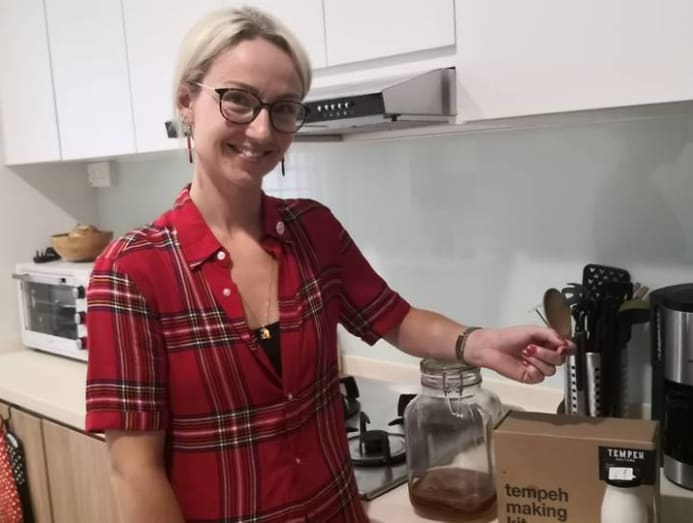
She will not be putting up a Christmas tree at home this year, a break away from a family tradition. Instead she has a small reusable S$2 tree. Her Advent wreath, which is traditionally used in the lead-up to Christmas, is also not typical. It is made of used wine bottles which also function as candle holders.
"A real wreath will need to come from somewhere where pine trees grow, so it's probably going to come on a plane, with a high carbon footprint," she said.
Practising a zero-waste Christmas is an extension of their daily habits.
For instance, Ms Goh has been using a reusable bag for more than 20 years. Clothes are also always handed down, and some clothes by Madam Chua are still being worn 40 years on.
AMOUNT OF WASTE EXPECTED TO INCREASE OVER FESTIVE SEASON
The Singapore Environment Council (SEC) said the amount of waste generated in Singapore has increased seven-folds over the last four decades.
Coupled with low plastic recycling, tonnes of food waste and the "traditional Asian view of over-preparing festive meals and elaborate festive packaging", the amount of waste is expected to increase over the festive season, the SEC's head of Environmental Certifications Liow Chean Siang.
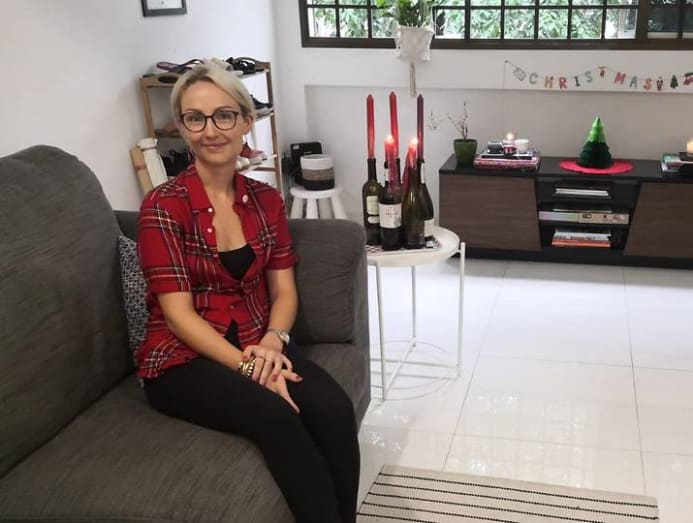
Through its food loss and food waste study, the SEC found that consumers avoid food waste by keeping unconsumed food, and by not being swayed by promotional offers to buy excess food items that are potentially wasted.
Mr Liow urged merrymakers to adopt these habits, and to adopt the “5 Rs” - reducing, reusing, recycling, refusing and repurposing.
He suggested donating unwanted gifts instead of throwing them away, and reducing the use of gift wrappers.
“Giving pre-loved items as gifts is trending and is gaining larger acceptance in other markets, as more people want to be sustainable and be part of a circular economy where nothing goes to waste,” he said.
He cautioned that as more waste is generated, the impact of climate change such as rising sea level, loss of biodiversity, and changes in crop yield may pose significant risks to the way people live.
But everyone can play a part is trying to mitigate this in part by consuming less and wasting less, he added.
“It is important for Singaporeans to remember that less is always best."





